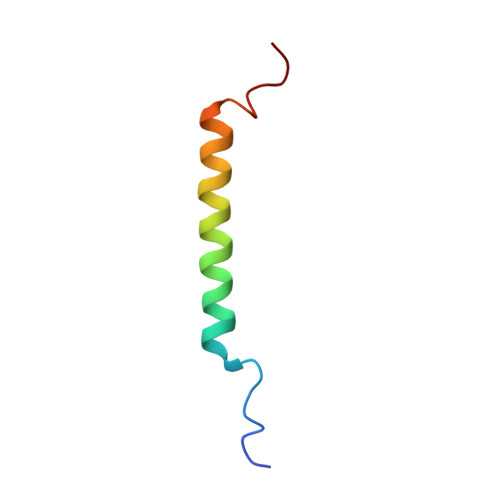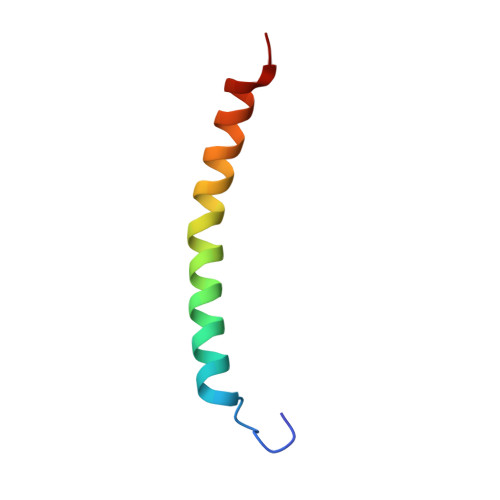Structural and thermodynamic basis of proline-induced transmembrane complex stabilization.
Schmidt, T., Situ, A.J., Ulmer, T.S.(2016) Sci Rep 6: 29809-29809
- PubMed: 27436065
- DOI: https://doi.org/10.1038/srep29809
- Primary Citation of Related Structures:
2N9Y - PubMed Abstract:
In membrane proteins, proline-mediated helix kinks are indispensable for the tight packing of transmembrane (TM) helices. However, kinks invariably affect numerous interhelical interactions, questioning the acceptance of proline substitutions and evolutionary origin of kinks. Here, we present the structural and thermodynamic basis of proline-induced integrin αIIbβ3 TM complex stabilization to understand the introduction of proline kinks in membrane proteins. In phospholipid bicelles, the A711P substitution in the center of the β3 TM helix changes the direction of adjacent helix segments to form a 35 ± 2° angle and predominantly repacks the segment in the inner membrane leaflet due to a swivel movement. This swivel repacks hydrophobic and electrostatic interhelical contacts within intracellular lipids, resulting in an overall TM complex stabilization of -0.82 ± 0.01 kcal/mol. Thus, proline substitutions can directly stabilize membrane proteins and such substitutions are proposed to follow the structural template of integrin αIIbβ3(A711P).
- Department of Biochemistry &Molecular Biology and Zilkha Neurogenetic Institute, Keck School of Medicine, University of Southern California, 1501 San Pablo Street, Los Angeles, CA 90033, USA.
Organizational Affiliation:

















